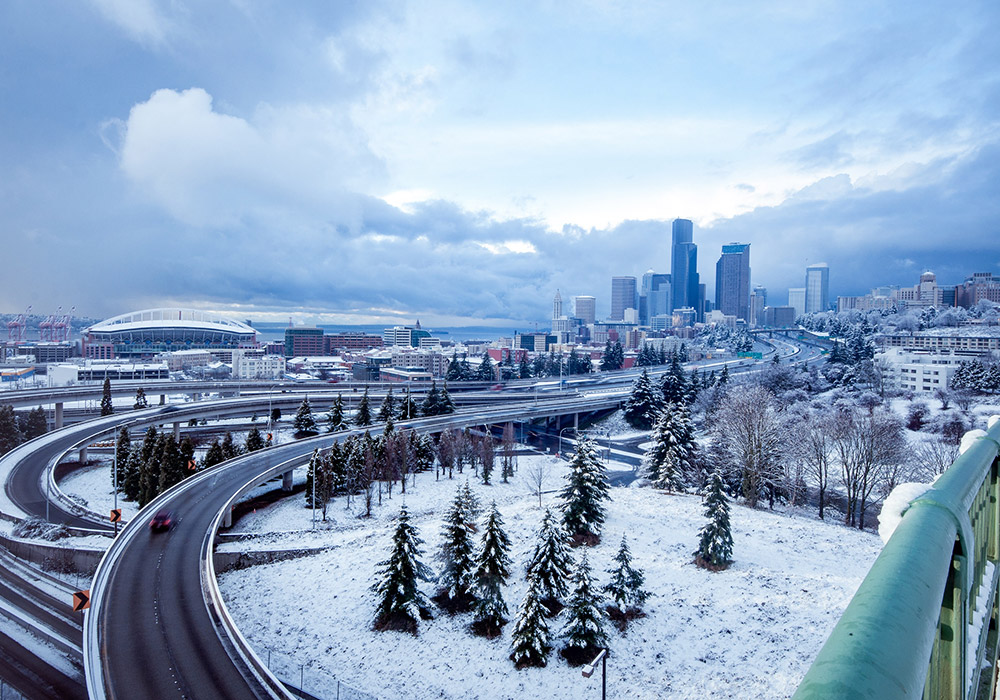Storm Prep Beyond the Grocery Store
The winter storm is coming and we want to make sure that you are prepared. Snow, ice storms, and bitter temperatures are expected to affect wide swaths of the country, including southern regions.
Winter weather can be unnerving, given how unpredictable it is. We recommend preparing ahead of time to keep your fears at bay. But following a few simple tips, like staying off the roads and indoors, can prevent you from getting hurt during bad storms.
Before the Storm
Get Prepared.
- Set the temperature in your home to at least 65 degrees. While it's important to save on utilities, you also need to ensure your pipes don't freeze and expand and cause potential damage.
- Vehicles should be ready before the storm. Be sure to fill your gas, wiper fluid, and monitor the tires. It is also important to make sure the engine is tuned up and running smoothly before you leave. Cold Temperatures can affect your car's battery life. Make sure you have a good battery. Consider installing heavy duty winter windshield wipers and using winter-specific washer fluid to reduce the risk of ice forming during cold weather driving.
- Temperatures can affect your car's battery life. Make sure you have a good battery. Consider installing heavy duty winter windshield wipers and using winter-specific washer fluid to reduce the risk of ice forming during cold weather driving.
- Keeping the power on when the power goes off is an important aspect of home maintenance. Remember to consider standby or permanently installed generators and battery backups to make sure your home stays powered & running. Don't use a generator inside or in an attached garage due to carbon monoxide dangers.
- If you want to be ready for anything and need to respond and recover after a disaster, put together an emergency supply kit that can sustain your household for several days. This kit should include: flashlights, radios, batteries, extra food & water, clothing, blankets, and toiletries – as well as money.
- Monitor NOAA Weather radio or local TV & radio stations for updates about the storm and for bulletins about school closings. Make sure to be prepared in case a State of Emergency announcement is broadcasted.
- Have rock salt or a more environmentally-friendly alternative on hand to melt ice on driveways, porches and walkways to avoid falls. Ensure you have snow shovels, snow blowers and other equipment handy. Have gas for your snow blower ready.
- Bring all pets indoors.
- It's a good idea to stock up on firewood if you have a fireplace or wood stove and also to have extra blankets on hand in case your main heat source system goes out.
- Have non-perishable foods available that don't require any cooking.
During the Storm
Let's remember to plan ahead, stay calm, and keep emergency kits in good order. With the introduction of emergency alerts, you can monitor updates and warnings during periods of extreme weather. Remember these other steps may also help keep your family safe during a storm.
- Stay indoors.
- If you don't have to travel, then please don’t.
- If you are going to be outside, it's important to wear footwear that offers good traction and lots of layers. A hat will help keep your body heat inside.
- Don’t lift heavy snow. When you have to shovel, try not to lift it with your back. It is better if you lift up with your legs instead.
- If you find yourself in a situation where power has gone out, take some time to reconnect with your family by playing cards or board games, talking, etc.
- It is important to check on older family members and neighbors.
- Stay up to date with NOAA Weather radio or other local TV or radio to hear any updates about the storm and any closings that may occur or State of Emergency announcements that are made.
After the Storm
Once the storm is over make sure it's cleared for you to go outside by following the instructions of local officials. Avoid any streets that haven't been plowed and watch out for black ice that may be hiding underneath. The following additional tips can help you and your family stay safe following a winter storm.
- Keep drains and gutters free of debris, insulate light fixtures below any unheated attic space, and consider installing a snow-melt system to keep ice off your roof and down your pipes.
- If you can, avoid driving as much as possible. Give snow plows time to clear all the roads.
- To avoid having to deal with hypothermia, stay inside. If you do have to go outside, wear layers of clothing and shoes that grip the ground well. Wear a hat & gloves too.
- You'll want to find and clear out your nearest fire hydrant BEFORE a fire starts. Make sure to clear a space around the hydrant (3 feet wide) as well as a path from the street to the hydrants, in case it needs to be used during an emergency.
- If you have lost power in your home and don’t have heat for hours, seek shelter with a neighbor or family member who may have a generator.
If You are Affected by the Storm and Need to Submit a Claim
Claims are serious, and it is important that they are resolved quickly. Our team of dedicated and experienced professionals will work to help make sure your claim is resolved quick. We can also help arrange for emergency response services and connect you to your network of providers.
If you incur damage, there are several ways you can file a claim. Your first option is to contact the insurance company directly. Find direct contact information by carrier here. If you ever need us we're just a phone call away.
